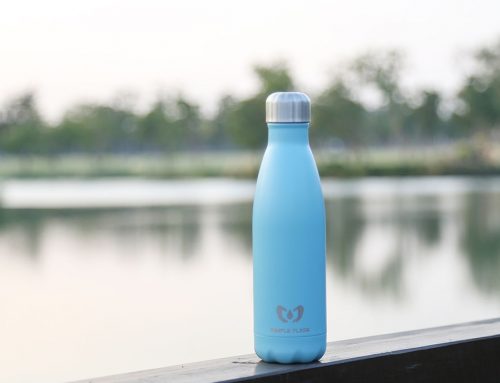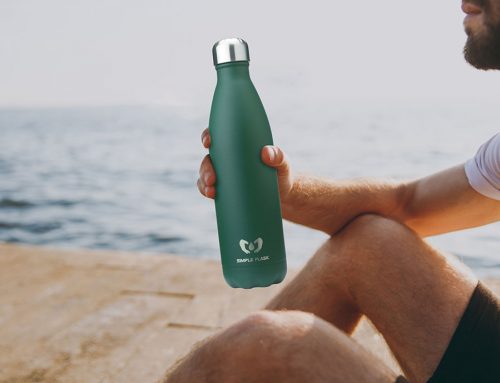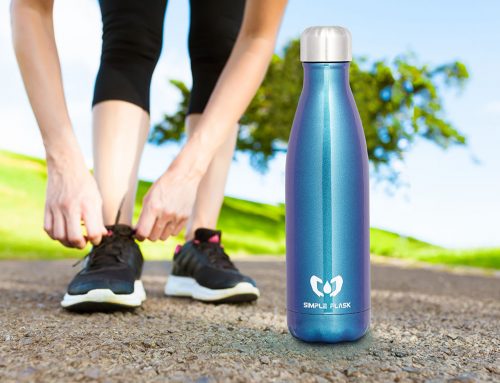| How much water do you drink every day? A person needs about 1.5 liters of water a day normally, which equals to eight cups of 200 ml of water. But it also depends on the amount of daily activity a person is doing. Reasonable way is, drink water every time with 100ML to 150ML is appropriate, interval time is 20 to 30 minutes. When Do You Drink Water? Drink water evenly throughout the day and night. Don’t drink too much water in a single hour. Drinking less before going to bed and more after going to bed is also a good way to drink water. Drinking too much water before going to bed will cause swollen eyelids and nocturia, which will affect the quality of sleep. After a night of sleep, the human body loss of water about 450ML, the morning needs to be supplemented in time, so after getting up in the morning to drink a cup of water on an empty stomach is beneficial to blood circulation, and promote brain awake. Every system in the body needs to drink water – in fact, most of our bodies are water. Your muscles, blood and brain are more than 70 percent water. This is one of the keys to maintaining a person’s daily physiological needs, and most people don’t drink enough water. Here are 10 summaries of water functions: a. Never Underestimate the Value of Water Water regulates body temperature, transports oxygen and nutrients, carries away waste products, AIDS in liver and kidney function, and dissolves vitamins and minerals. Each person needs to consume 10 to 12 cups of water per day to maintain fluid balance b. Watch Out for Dehydration According to the Mayo Clinic and other leading health management organizations, even mild dehydration can cause health problems such as lethargy and constipation. Symptoms of dehydration include loss of appetite, mild headache, dizziness, and a general calcium deficiency. It also proves that proper hydration can prevent diseases such as kidney stones and lower the risk of colon cancer. c. Eight Is Not the Magic Number Forever Drinking eight 8-ounce glasses of water a day is pretty standard, but you may need more, especially if you’re exercising. The easiest way to calculate your body’s fluid needs is to divide your weight by two. The number you get is the amount of water you need each day. d. If You Still in Doubt, Fill Another Glass of Water People need to drink plenty of water to avoid dehydration caused by hot, humid or too cold weather and high altitude. Especially when you are sick with a cold, especially when you have a fever, you need to replenish a lot of water. In addition, some weight management experts also believe that drinking a glass of water with each meal can reduce food intake and aid digestion. e. Notice the Liquid You Can’t See Plain water is best, but milk, juice, and other beverages are also about 90% water content, so they’ll help you meet your hydration requirements. Caffeinated beverages and alcohol are part of the diuretic group and therefore increase fluid loss, so they don’t count. In fact, drink a glass of water for every caffeinated or alcoholic beverage you drink. f. Drink Water Before Symptoms Appear Many experts believe that if you wait until you feel thirsty before drinking, you’re already slightly dehydrated. Drink a glass of water as soon as you get up and before you go to bed. g. Don’t Change Your Water Intake Plan Plan to drink water at regular intervals throughout the day. Keep a glass or water bottle handy as a reminder, or put a time to drink on your daily schedule. h. Drink Plenty of Water During Exercise To avoid dehydration from exercise and sweat, you need to rehydrate as quickly as possible. The American Dietetic Association (ADA) recommends drinking two glasses of water two hours before starting a workout, followed by two glasses 15 to 20 minutes before starting an endurance workout. You need to rehydrate every 15 to 20 minutes during exercise. i. Drink Sports Drinks When You Exercise for Long Periods of Time According to the ADA, the traditional North American model of weight control provides plenty of sodium, potassium, chlorine and magnesium to replace sweat loss. However, if you exercise for more than an hour or in extreme weather conditions, consider consuming a sports beverage to maintain an electrolyte balance to improve fluid absorption and carbohydrate support for energy supply. j. Watch Out for Additional Abnormal Symptoms If you experience abnormal thirst or urination, seek medical help to identify the problem. Increased thirst sensation and urine (volume and frequency) may be signs of illness, including varying degrees of diabetes. Water is the second most important substance to man next to oxygen. An adult’s body is 60% water by weight. Children have an even greater proportion of water, up to 80 per cent. If a person does not eat, only drinks water, relies on his own stored nutrients or consumes his own tissue, he can survive for a month. But it’s hard to go through a week without water. 10% water loss in the body is a threat to health; If 20% water loss, there is life danger, it shows the importance of water to life. Water is not only the main component of the body, but also the medium of metabolism of all substances, with many physiological functions. For example, water participates in the REDOX reaction and promotes various physiological activities and biochemical reactions. Without water, it is impossible to maintain blood circulation, respiration, digestion, excretion and other physiological activities, and the body’s metabolism cannot be carried out. Water also helps regulate body temperature. In addition, water is the body’s own lubricant. With the improvement of living standards, in recent years, there has been pure water, mineral water, all kinds of drinks, varieties, more and more, plus the overwhelming advertising, it seems that only drink these “water” to quench thirst, to maintain a healthy body, just enough fashion. Experts point out that this is irresponsible and misleading to consumers. For example, Pure Water, its biggest advantage is to maximize the removal of bacteria, viruses, heavy metals in the raw water, especially organic pollution. But the biggest drawback of pure water is that it eliminates essential minerals and trace elements such as calcium, magnesium, fluorine, iodine and selenium. Data show that the intake of calcium and magnesium in drinking water should account for 5% ~ 20% of the total intake. Some experts point out that long-term drinking pure water, not only reduced the intake of beneficial elements, at the same time pure water may also serve as a kind of “hungry water”, promote beneficial elements in the body discharge. The above is only from the qualified pure water to analyze its advantages and disadvantages. At present the unqualified pure water on the market has quite big proportion. According to Guangdong province bureau of quality technical supervision spot check, drinking water pass rate is 43.6% only, some bacterial colony number exceeds standard greatly, this is more serious to health effect. At present, there are many kinds of beverages on the market, which can be divided into seven categories according to the ingredients contained in them. One is alcoholic drinks, including beer, distilled spirits, fruit wines, mixed spirits, etc. These drinks contain ethanol, which is obviously not suitable for drinking instead of water. The second category is natural fruit juice drinks; Three are natural vegetable drinks; The fourth category is beverages containing electrolytes, such as soda that people often drink. The fifth category is mineral spring drinks, mostly made up of natural mineral water. The sixth category is caffeinated beverages, including coffee and cola-type beverages. The seventh categories are dairy beverages, including milk and milk as the main raw material processing and mixing of various beverages. None of these seven types of beverages should or can replace water. Experts at home and abroad agree that the real healthy drink is in the thermos bottle. According to research, the biological activity of boiled water than natural water 4 ~ 5 times higher, and living cells in the water is very similar, often drinking can prevent colds, pharyngitis and some skin diseases. What is the Standard of Drinking Water? Drinking water is simple and easy to do, but experts have observed that many people do not reach the standard amount of water, which has a great impact on health. According to clinical statistics, 9 ~ 10 in the morning every day, it is the peak time of the heart, one of its reasons is concerned with the lack of water inside the body. Because of the night sleep rarely drink water, and breathing and skin moisture evaporation did not stop, blood viscosity increased, coronary artery thrombosis increased the opportunity. Is drinking more water always better? Of course not. In particular, a sudden large amount of water, but also cause water poisoning. A British patient died of respiratory and cardiac arrest after drinking 15L of water for two hours. After repeated tests, the cause of death was excessive drinking of water. Since drinking too much or too little water can affect your health, how much water should a person drink every day? This problem can not be generalized, because the amount of water a day and age, gender, weight, occupation, season, exercise, health status and other factors. Under normal circumstances, a normal adult needs 3L of water per day, of which about 1L are consumed through meals, vegetables, soups and fruits, and the rest are supplemented by water. That is to say, an average adult needs to drink 2L of water per day. The elderly over 60 years old are about 80% of the adults, which is 1.6L. Male than female increase 10% ~ 15%, 2.2~2.3L; Obese people should increase by 10 percent, and thin people should reduce by 10 percent. In addition, exercise, sweating and other situations should also drink more water. Take Your Time to Drink Water While there’s no set schedule for when to drink water, there are a few times you should pay special attention to. Get a reusable water bottle and drink more water bottle. First, don’t drink water when you are thirsty. Because drinking water can quench thirst, many people take it for granted to drink water when they are thirsty, which is actually a drinking mistake. Drinking water is a physiological need of human beings. Not thirsty does not mean that the body does not need water. Once thirst occurs, it means that the body has been short of water. Second, drinking a cup of water after getting up in the morning, especially for those who have heart disease and older than 50 years old, can help prevent or reduce heart disease caused by increased blood viscosity. Third, infants and young children add water between two breast-feeding, conducive to its growth and development. Fourth, before going to bed to drink a small amount of water, can prevent night blood viscosity increased, but do not drink a lot of water, so as not to increase nocturnal urine volume, affect sleep. Fifth, strenuous exercise or work a lot of sweating, do not immediately drink a lot of water. You can use warm water to moisten your throat, 30 minutes and then an appropriate amount of water. Sixth, don’t drink a lot of water before and after meals. Especially after meals half an hour to an hour do not drink or drink strong tea as little as possible, infants, pregnant women and anemia patients should pay more attention to this point. |
BPA free , Durable, and Stylish
Lifetime warranty against manufacturing defects
International Shipping Services




